Shape Recognition Normal Worksheets for 6-Year-Olds
32 filtered results
-
From - To
Welcome to our Shape Recognition Normal Worksheets for 6-Year-Olds! Designed to support early childhood education, these worksheets offer fun and engaging activities to help young learners identify and differentiate between various shapes. Each printable worksheet encourages creativity while enhancing cognitive skills, allowing children to recognize shapes in everyday objects and develop their geometric understanding. Perfect for home or classroom use, our worksheets inspire critical thinking and problem-solving as kids trace, color, and match shapes. Spark a love for learning and build foundational skills with our shape recognition resources, tailored specifically for 6-year-old learners. Explore and enjoy today!
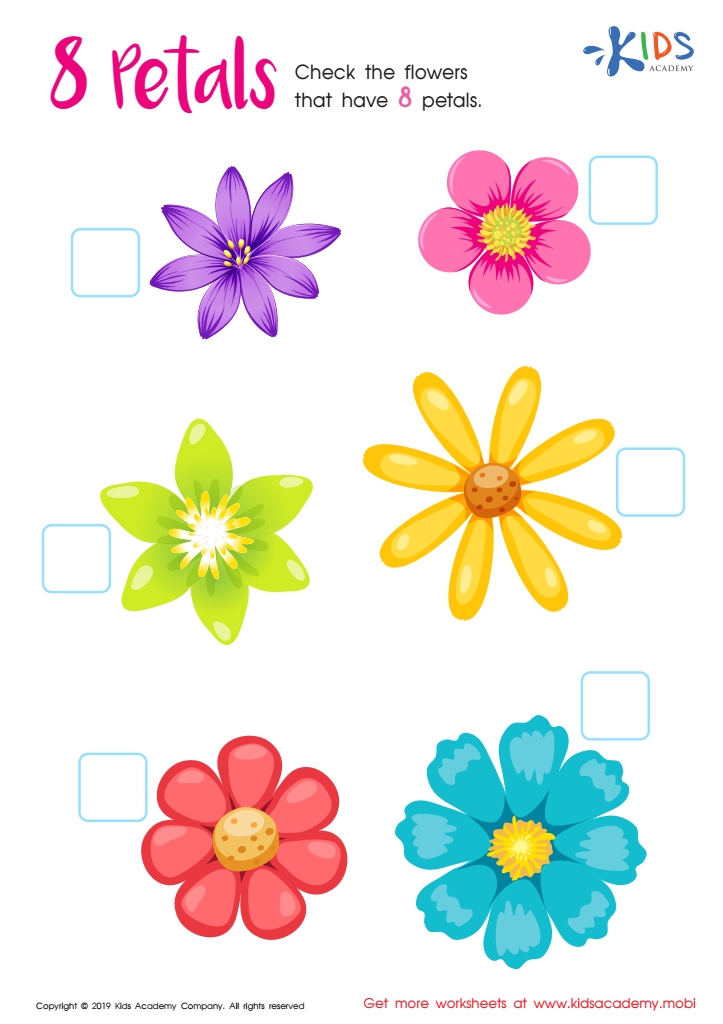

8 Petals Worksheet
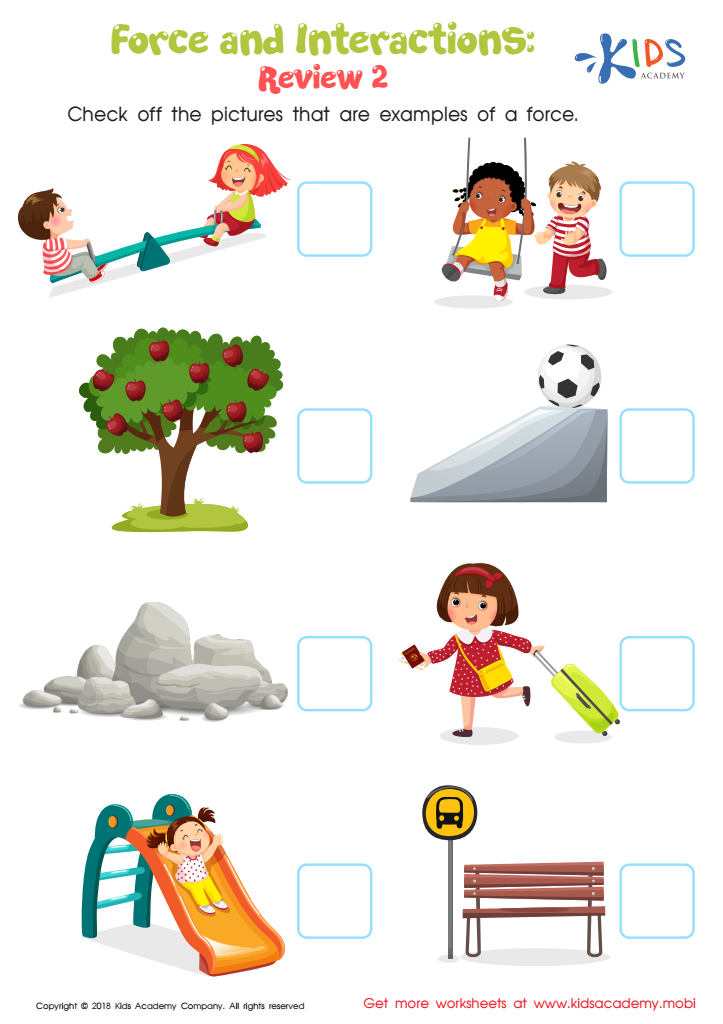

Force and Interactions: Review 2 Worksheet
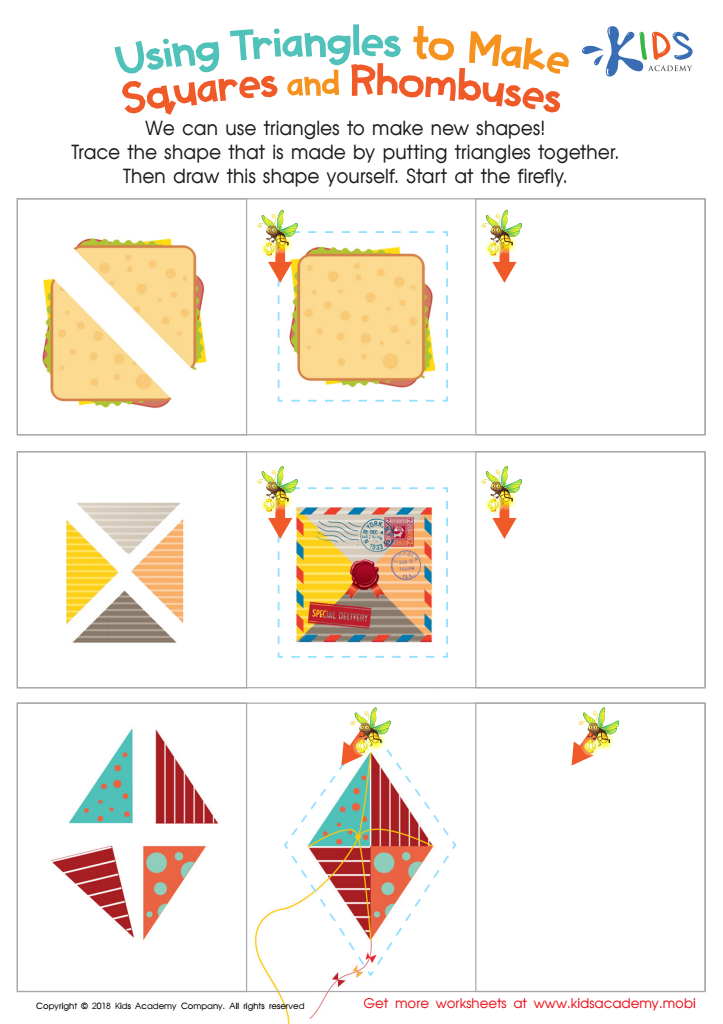

Using Triangles to Make Squares and Rhombuses Worksheet
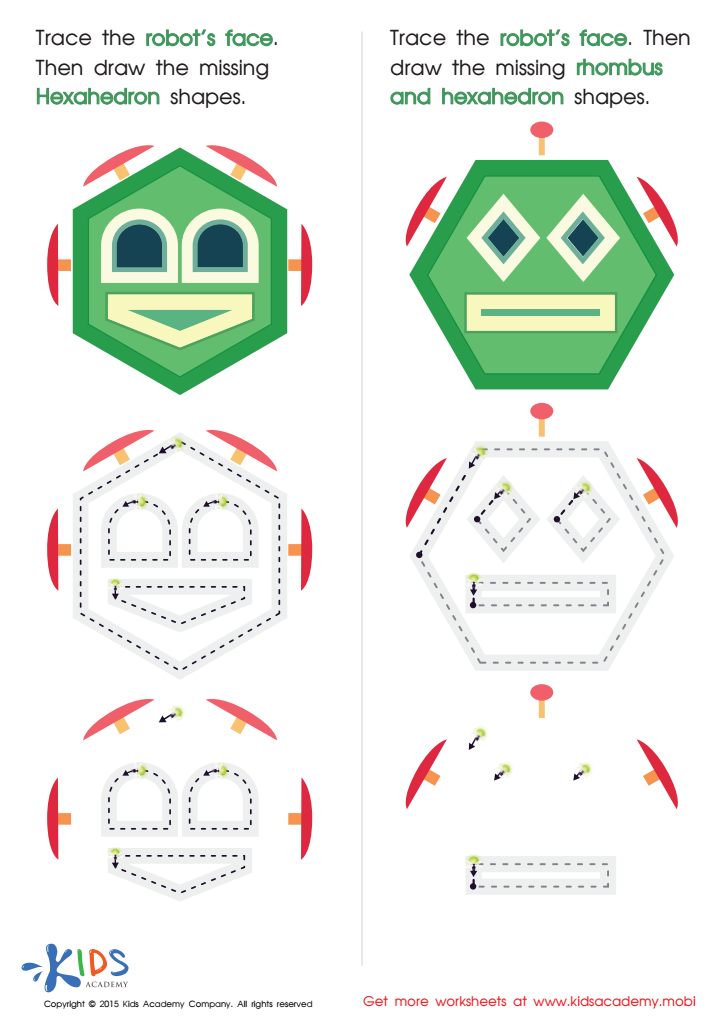

Practice Drawing Hexahedrons And a Rhombus Worksheet
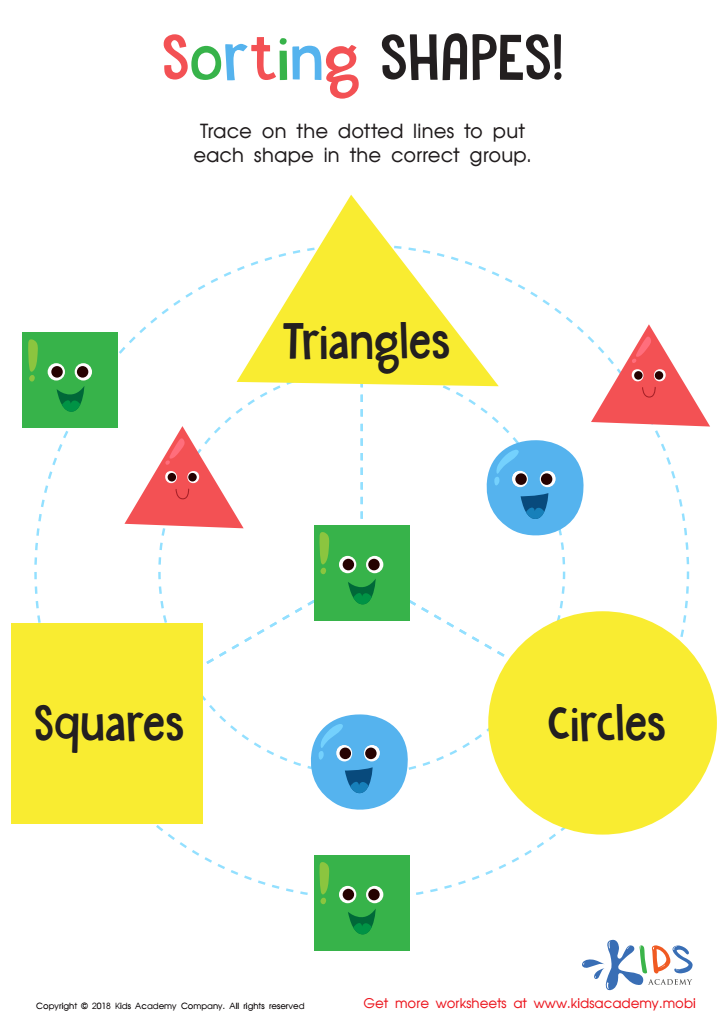

Sorting Shapes - Part 3 Worksheet
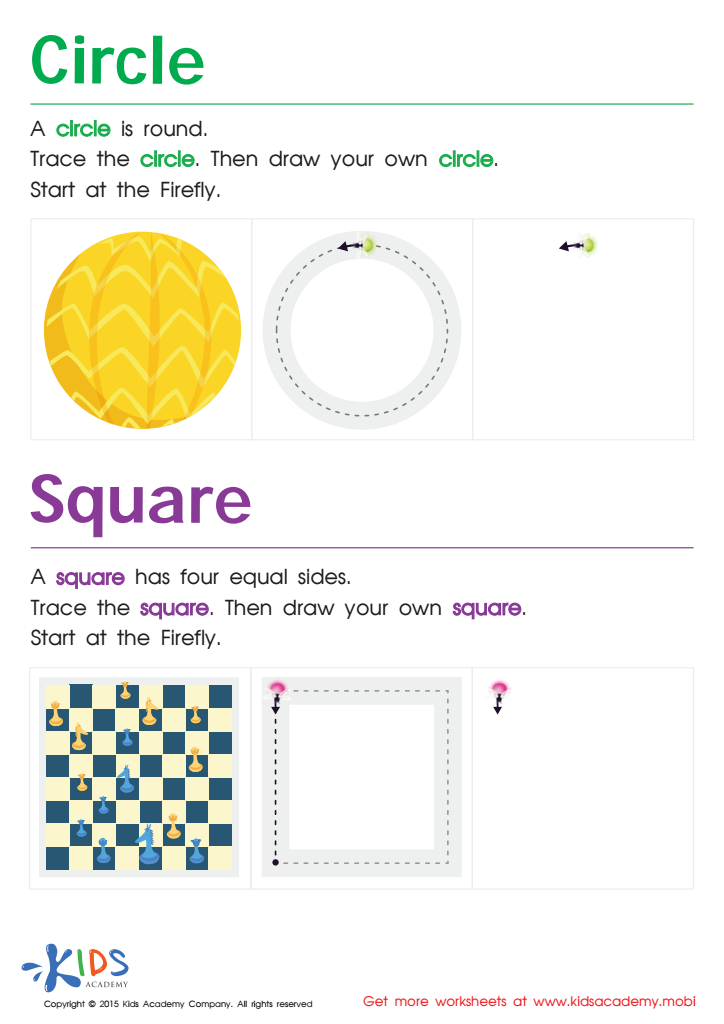

Trace And Draw a Circle And a Square Worksheet
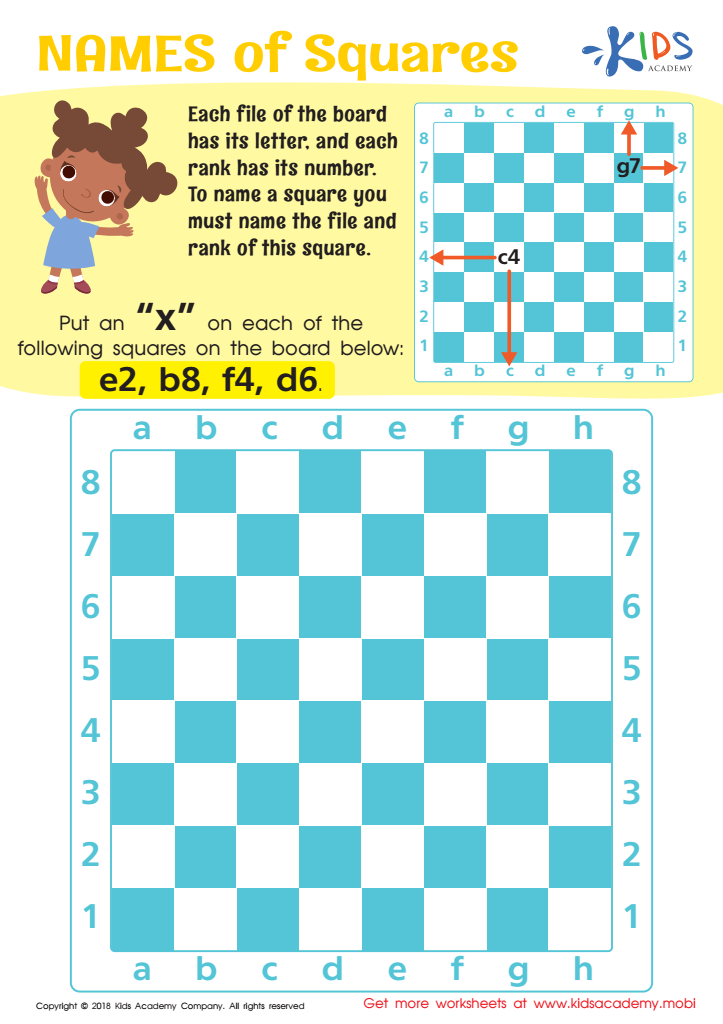

Names of Squares Worksheet
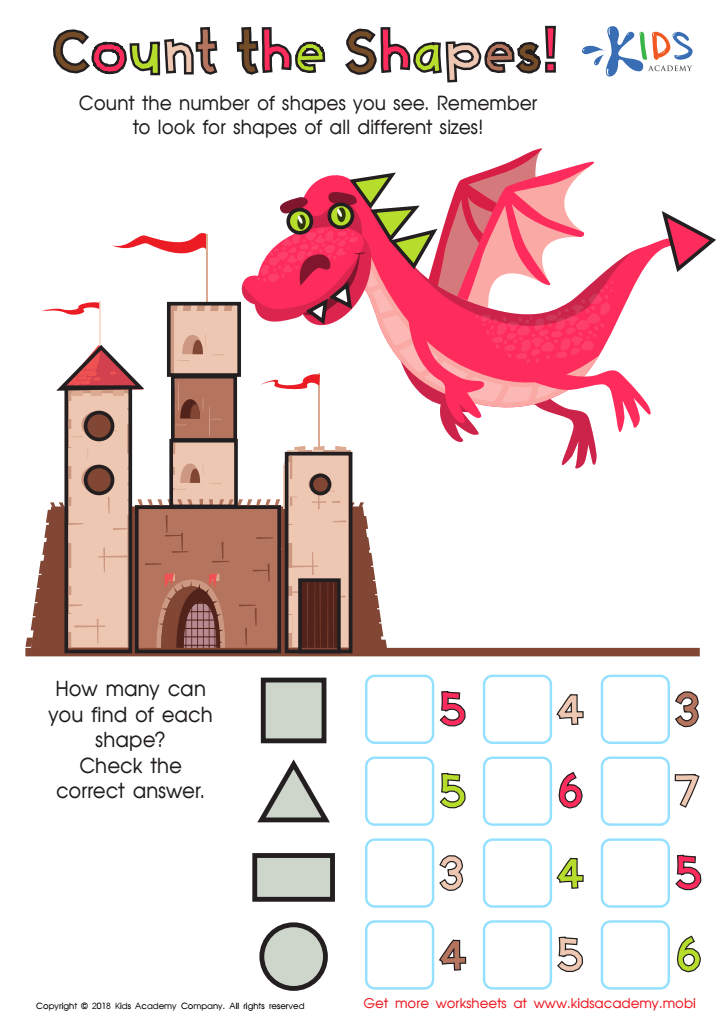

Count the Shapes Worksheet
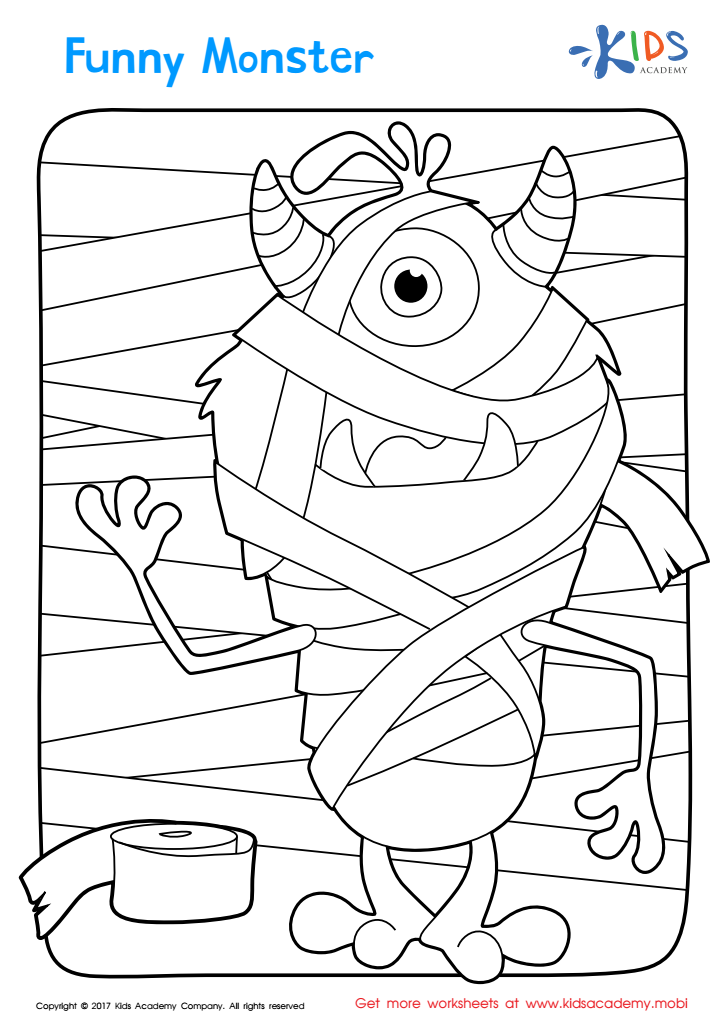

Halloween: A Funny Monster Worksheet
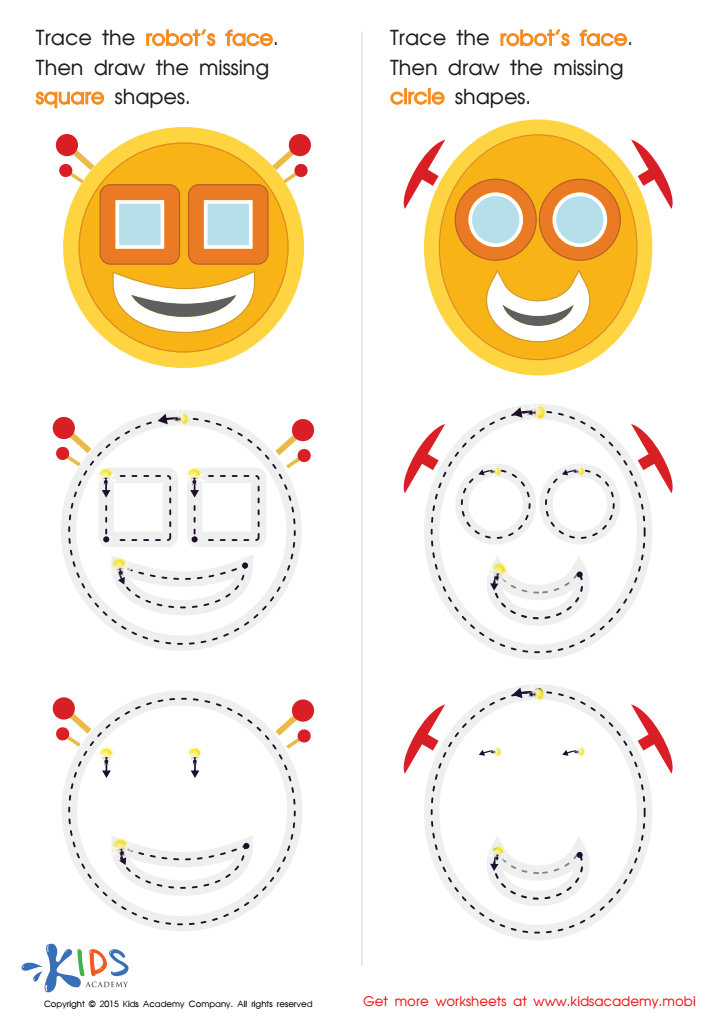

Practicing to Draw Circles And Squares Printable
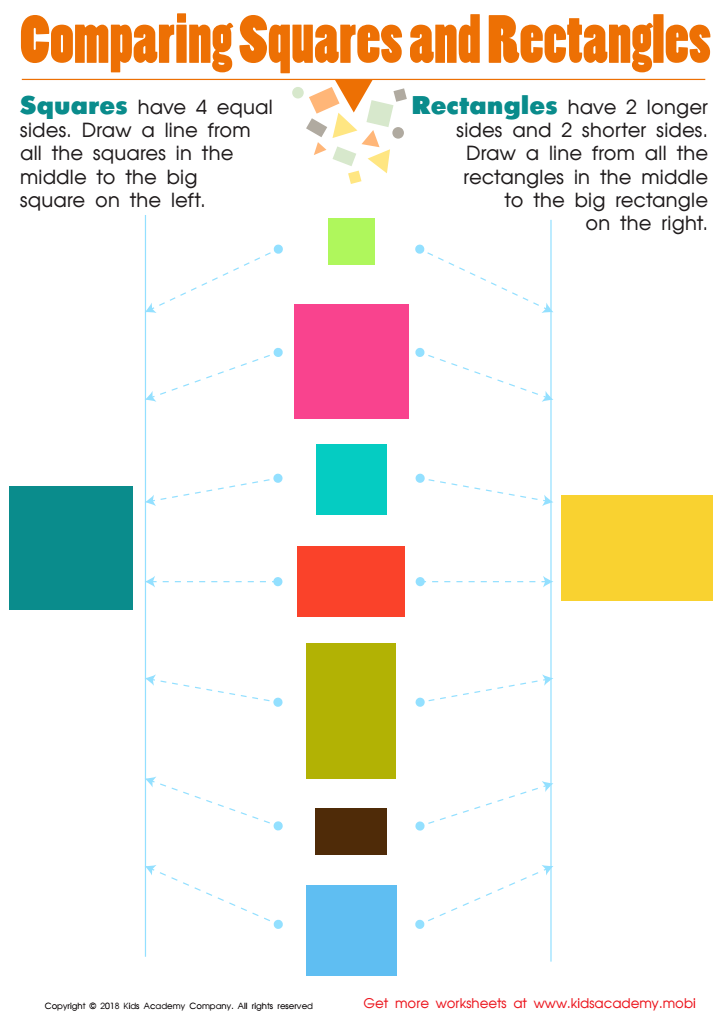

Comparing Squares Rectangles Worksheet


Will It Make a Shadow? Worksheet
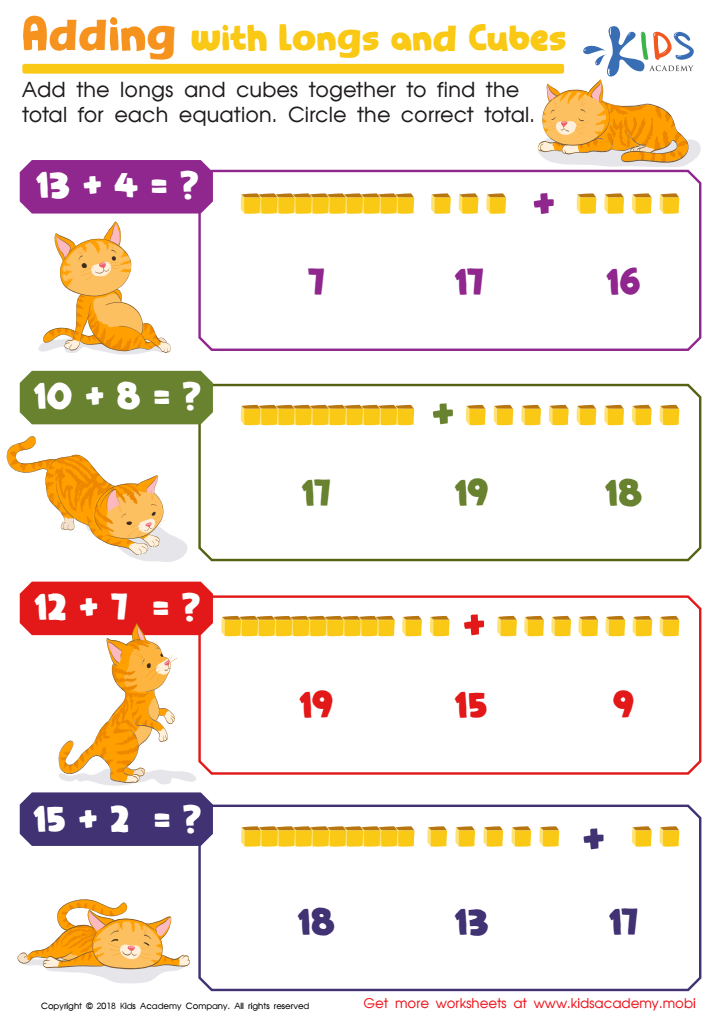

Adding With Longs and Cubes Worksheet
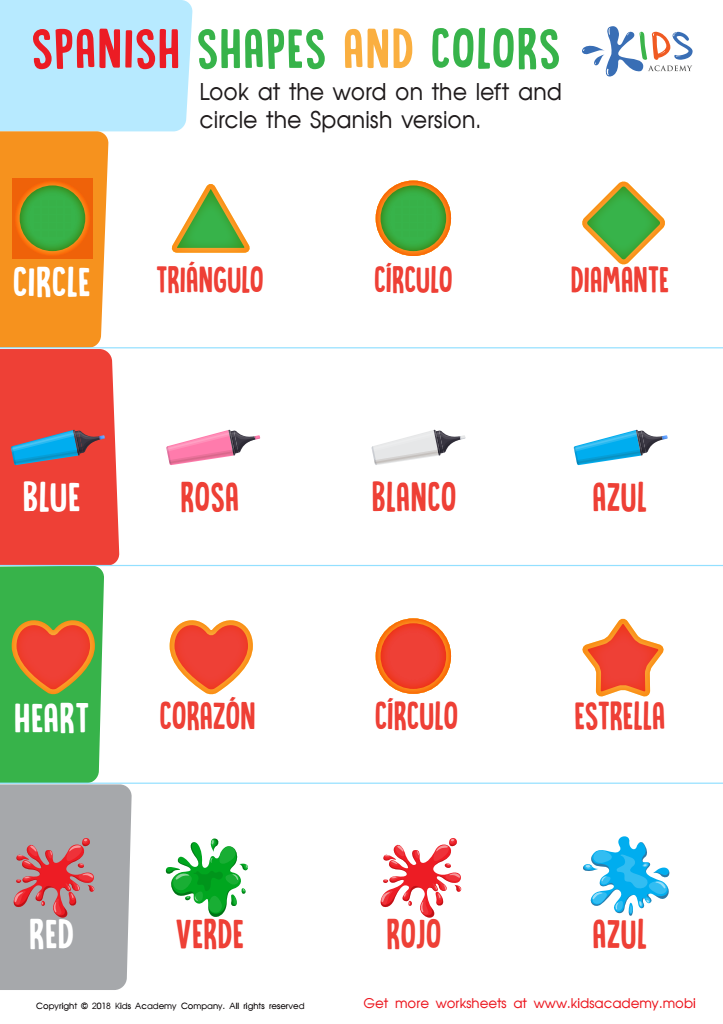

Spanish Shapes and Colors Worksheet
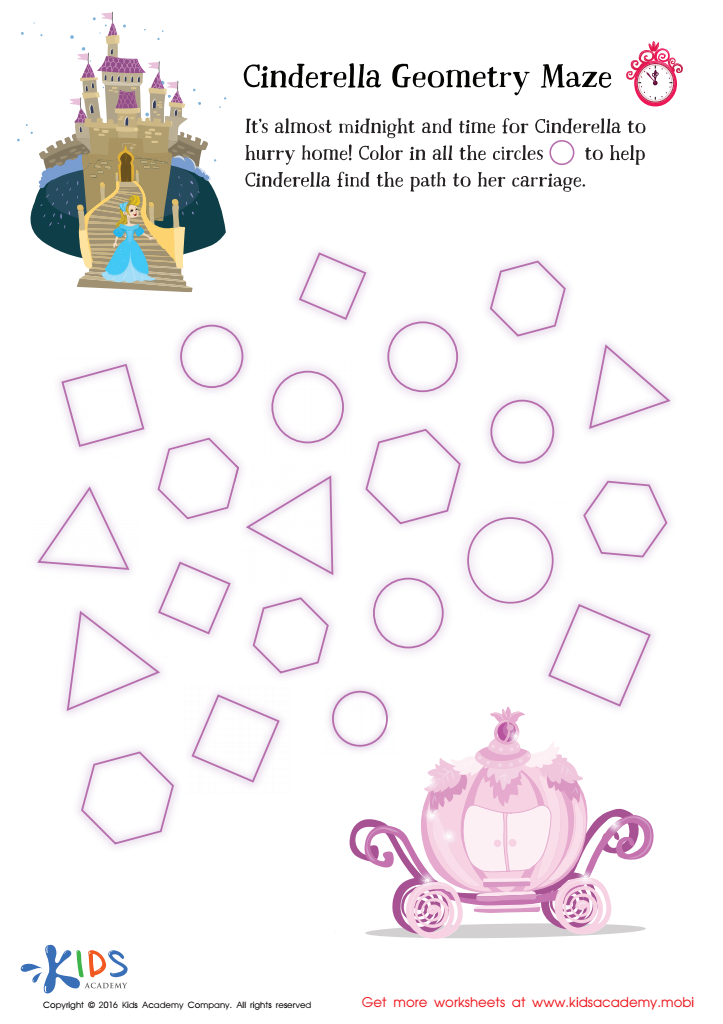

Cinderella Geometry Maze Worksheet


Preschool Geometry Match Up Worksheet
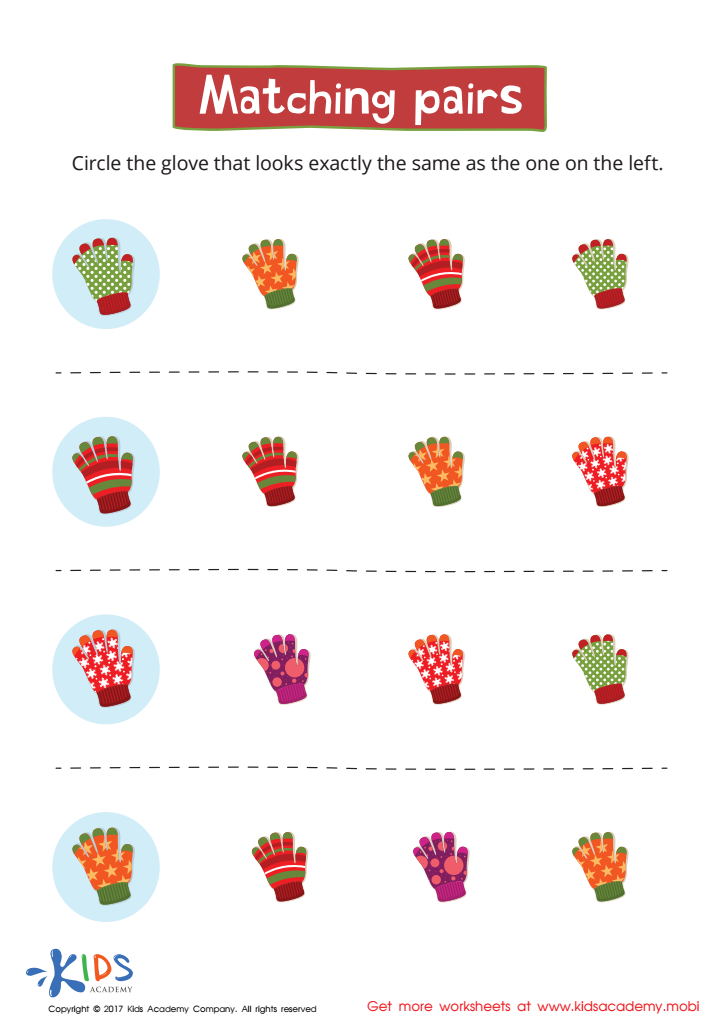

Matching: Matching Pairs Worksheet
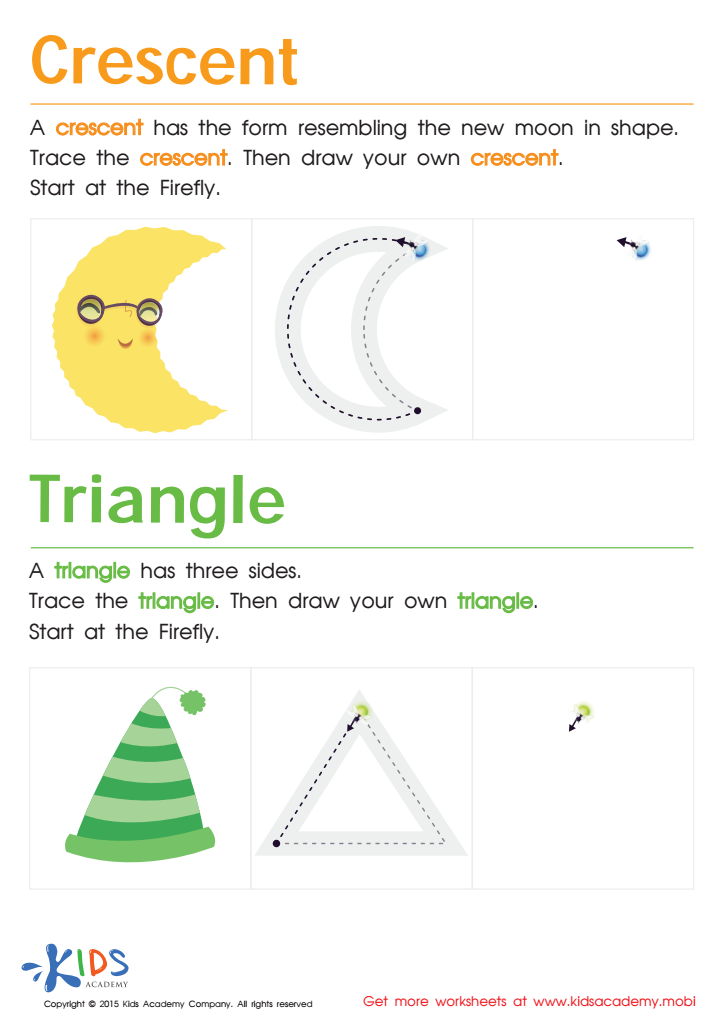

Learning to Draw Crescents And Triangles Worksheet
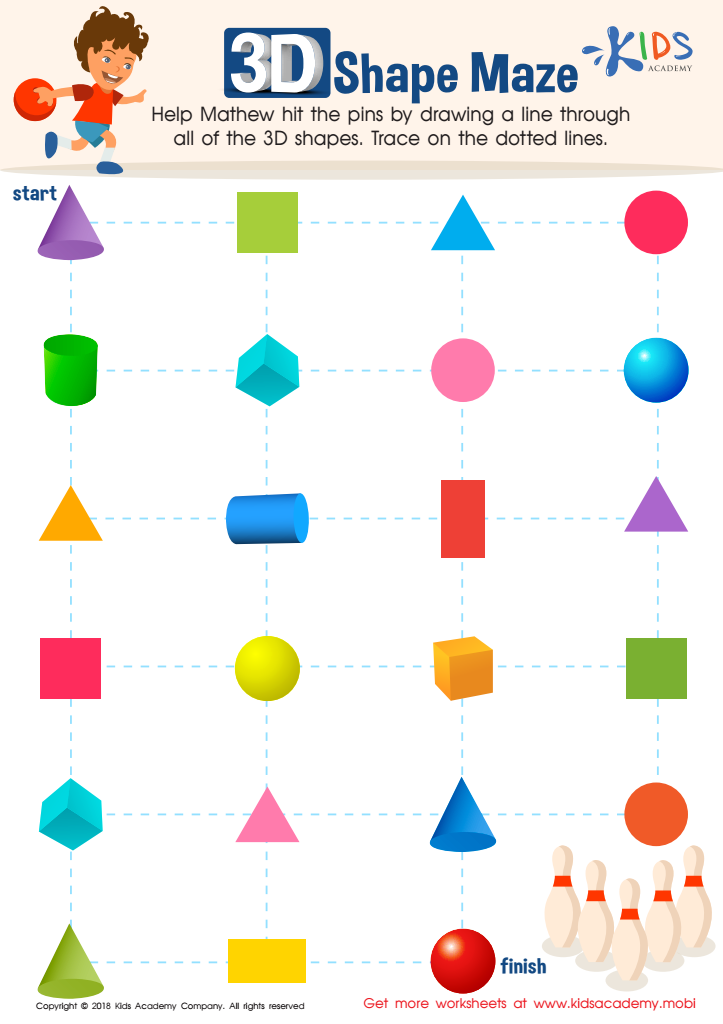

Shapes Maze Geometry Worksheet
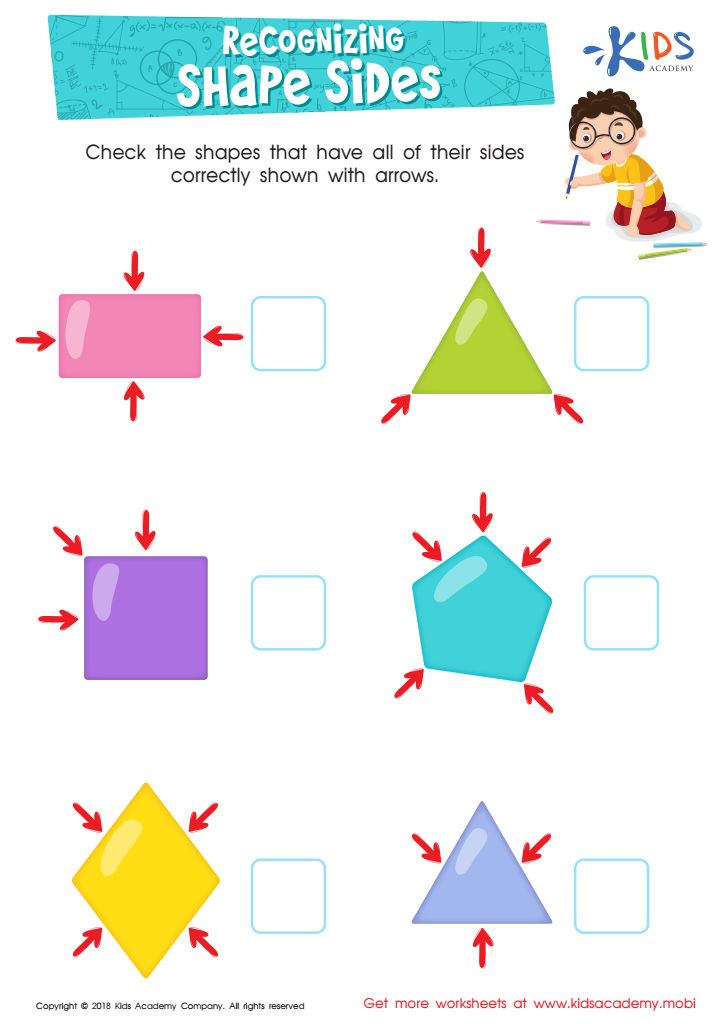

Recognizing Shape Sides Worksheet
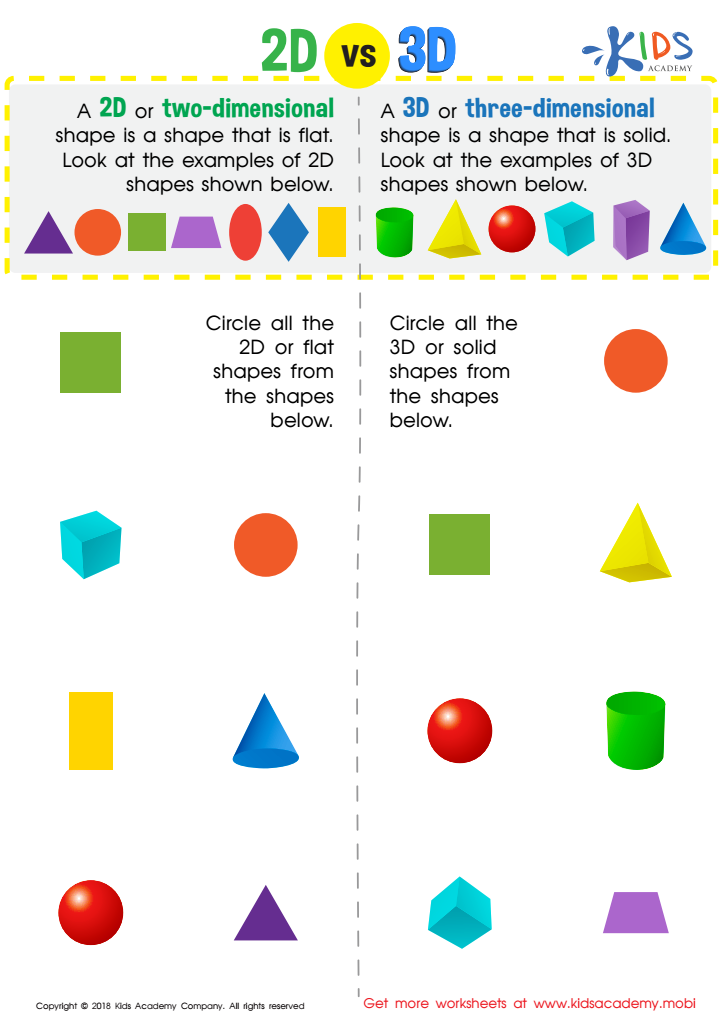

2D vs 3D Shapes Worksheet
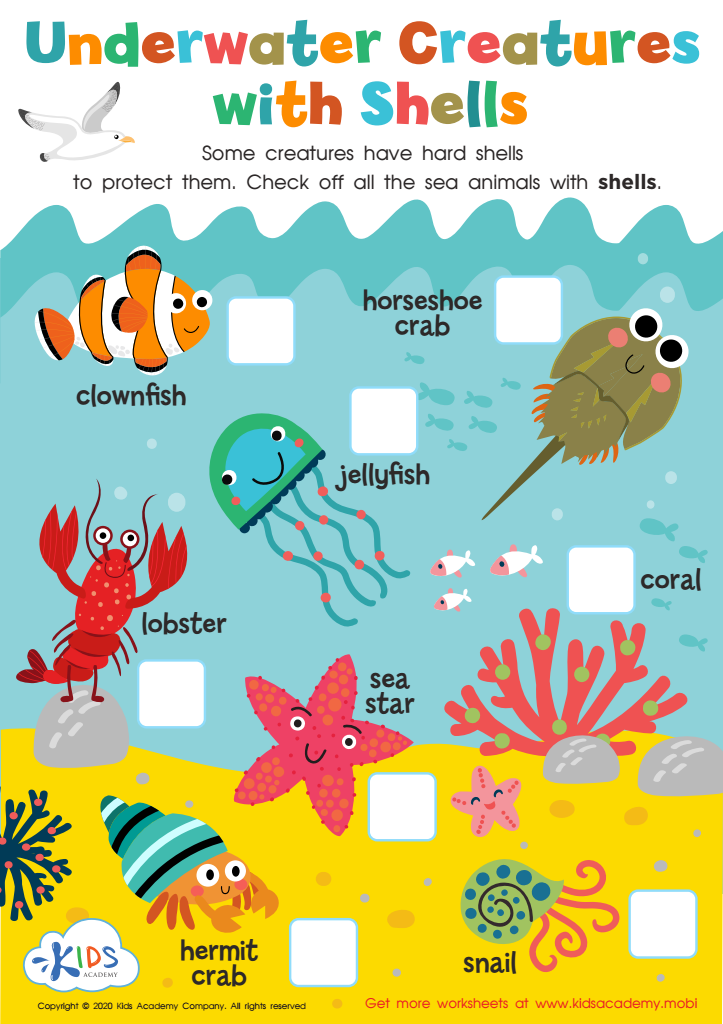

Underwater Creatures with Shells Worksheet
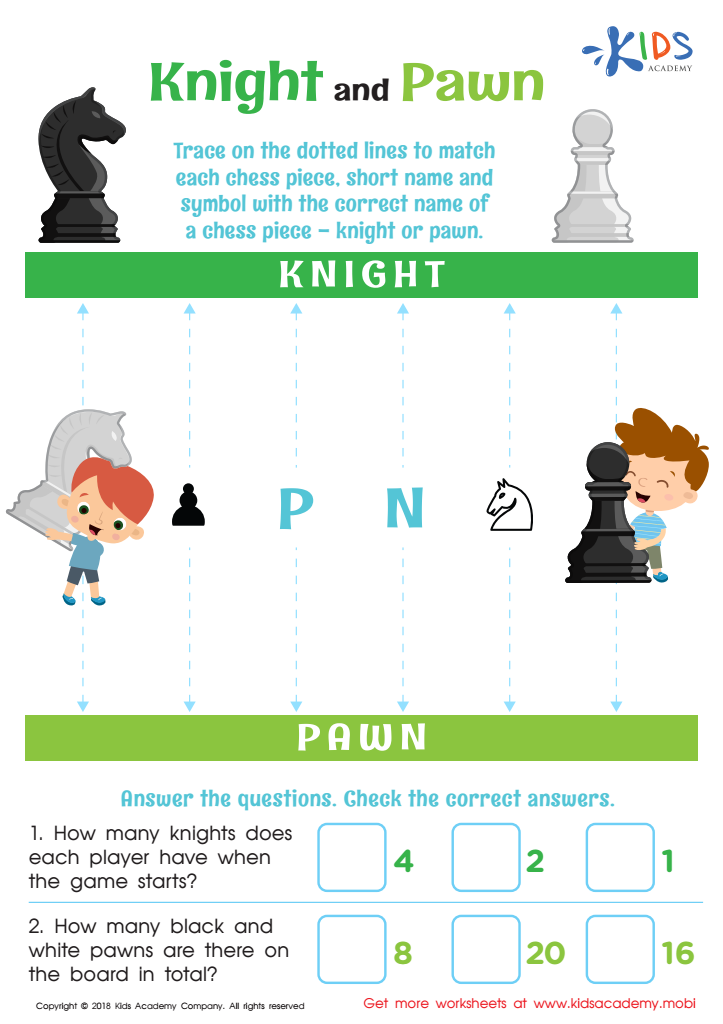

Knight and Pawn Worksheet
Shape recognition is an essential skill for 6-year-olds that has far-reaching implications for their cognitive development and everyday life. At this age, children are developing their spatial awareness, problem-solving abilities, and foundational math skills. Shape recognition helps them identify and categorize objects, which lays the groundwork for their understanding of geometry and mathematics later on.
Moreover, this skill is tied to language development; as children learn to identify shapes, they also gain the vocabulary needed to describe their attributes and relationships. This improves communication skills and semantic processing. For parents and teachers, fostering shape recognition helps children engage in critical thinking and enhances their confidence as they explore the world around them.
Additionally, shape recognition supports fine motor skills through activities like drawing, cutting, and assembling shapes, which are crucial for their overall development. In early childhood education, implementing playful and hands-on learning experiences can make shape recognition enjoyable. Parents can reinforce this learning at home with everyday activities, turning recognition into a fun and integral part of children's lives. By valuing shape recognition, adults play a vital role in equipping children with essential skills that will benefit their academic journeys and everyday problem-solving abilities.
 Assign to My Students
Assign to My Students
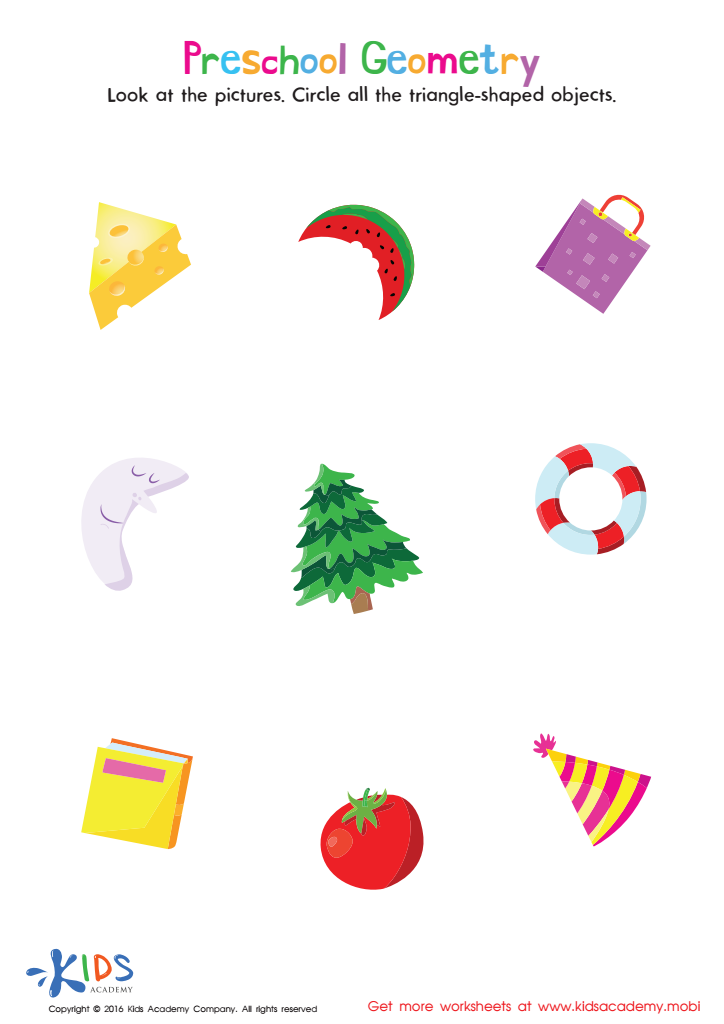




.jpg)









